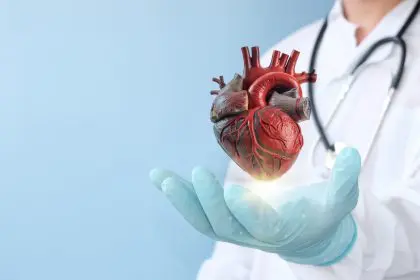Heart attacks are a life-threatening medical emergency, but they can often strike without warning and in places where symptoms might be dismissed or overlooked. Recognizing the risks and responding promptly can make the difference between life and death.
1. At home: Comfort can be deceptive
Most heart attacks happen at home, where people often feel safest. However, symptoms like chest discomfort, shortness of breath, or fatigue are often brushed off as stress or indigestion.
Why It’s Ignored: Being in a familiar environment leads many to downplay symptoms. They may hesitate to alarm loved ones or think it’s “nothing serious.”
Action Plan: Know the signs of a heart attack and communicate them with your family. If you experience any symptoms, don’t wait—call emergency services immediately.
2. At work: The pressure to push through
Workplaces can be a breeding ground for stress and physical strain, both of which increase heart attack risk. Busy schedules and deadlines often cause people to ignore warning signs.
Why It’s Ignored: Many fear losing their job or appearing weak, so they push through symptoms, assuming it’s just exhaustion.
Action Plan: Prioritize health over work. Employers should promote awareness and provide quick access to medical help if symptoms arise.
3. While exercising: Misinterpreting pain
Exercise is essential for heart health, but overexertion can trigger a heart attack, especially in those with undiagnosed conditions.
Why It’s Ignored: People mistake chest pain or breathlessness as a sign of “pushing limits” or poor fitness rather than a medical emergency.
Action Plan: Know your limits. Always consult a doctor before starting a new fitness routine, especially if you have risk factors like high blood pressure or diabetes.
4. In public places: Embarrassment prevails
Heart attacks in public areas, such as malls, parks, or restaurants, are often ignored or downplayed due to embarrassment or uncertainty.
Why It’s Ignored: Individuals worry about causing a scene or assume symptoms like sweating and nausea are due to heat or food.
Action Plan: If you or someone near you experiences symptoms, alert staff or bystanders. Early intervention saves lives.
5. While driving: Denial puts lives at risk
Heart attacks while driving are particularly dangerous, as the individual may not only harm themselves but also others on the road.
Why It’s Ignored: Drivers may attribute discomfort to road stress or assume they can “power through” until they reach home or a hospital.
Action Plan: If symptoms arise, pull over safely and call for help. Knowing emergency procedures can prevent accidents and save lives.
6. During sleep: Silent danger
Many people suffer heart attacks during the early morning hours due to changes in blood pressure and heart rate.
Why It’s Ignored: Symptoms like chest tightness or arm pain can be misinterpreted as a bad dream or muscle strain. By the time someone realizes it, precious time may have been lost.
Action Plan: Pay attention to recurring night symptoms. If you wake up feeling unwell, seek medical help without delay.
7. At social gatherings: Distracted by celebration
Events like parties or family get-togethers often involve heavy food, alcohol, and stress—all potential heart attack triggers.
Why It’s Ignored: Guests may feel reluctant to disrupt the event or assume their discomfort is related to overeating or excitement.
Action Plan: Be mindful of what you consume and how you feel. If symptoms appear, don’t hesitate to inform someone and get help.
Being prepared saves lives
Recognizing heart attack symptoms is crucial, but being prepared can make all the difference:
- Learn CPR: Knowing basic life support can save lives in emergencies
- Keep Emergency Contacts Handy: Always have quick access to important phone numbers
- Stay Aware of Risk Factors: High blood pressure, smoking, and diabetes significantly increase your risk
The importance of immediate action
Heart attacks can strike in places where people feel secure, leading to ignored symptoms and delayed care. By understanding the risks and acting swiftly, you can protect yourself and others from fatal consequences. Never underestimate your health—seek immediate attention if you or someone else exhibits signs of a heart attack. Early action could save a life.
This story was created using AI technology.















